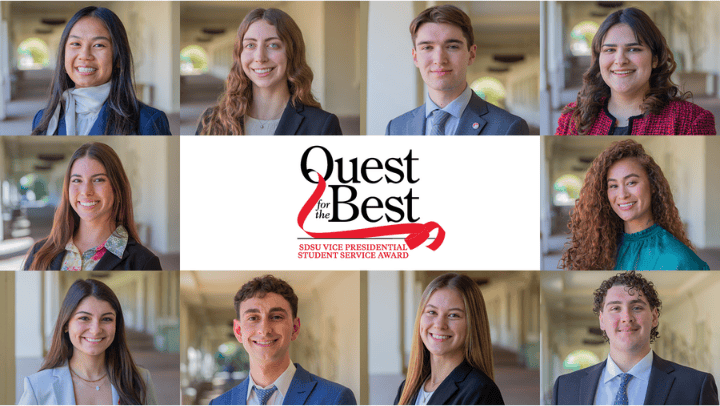SDSU Global Campus Partners with Qualcomm on Online 5G Certification Program
The program features training in cutting-edge 5G telecommunication technology led by expert engineers from Qualcomm

SDSU Global Campus and wireless telecommunications giant Qualcomm have partnered to offer a new advanced online 5G certification program.
The Qualcomm Associate-Level 5G Certification program is being offered directly to SDSU Global Campus students for the first time. It features training in cutting-edge 5G telecommunication technology led by expert engineers from Qualcomm.
The new partnership represents a renewed focus for SDSU Global Campus as the former College of Extended Studies works with local companies and organizations to offer students unique opportunities to expand their educations in emerging technologies.
"By forging partnerships with industry leaders like Qualcomm, SDSU Global Campus is not only advancing our mission of providing accessible education to the community but also creating invaluable job opportunities for learners aspiring to embark on exciting careers in 5G technology,” said Ian Gibson, who took over as the Dean of SDSU Global Campus in July. “Together, we are shaping the future workforce of this dynamic field.”
The certification program was launched by Qualcomm in the last year and is geared toward engineers with a technical background. Qualcomm recommends the certification program for engineers with at least a couple years of wireless experience, engineering graduate students, or more advanced undergraduate students with at least a couple years of engineering course experience under their belts.
“With lightning-fast speeds and ultra-high reliability, 5G allows us to communicate and conduct business in ways previously unthinkable,” said Vikram Malhotra, Senior Director of Program Management at Qualcomm Technologies, Inc. and head of Qualcomm Wireless Academy. “We are excited to partner with SDSU to train students on the latest 5G technology to help prepare them for a career in 5G.”
Students in the program will have access to all the course materials for one year after they purchase the program, regardless of when they take the final exam. The certification does not expire, so students who earn it can continue to use it for years.
5G Job Outlook
Job opportunities in 5G technology are already available in various sectors, from telecommunications and IT infrastructure to health care, education, and manufacturing. New emerging 5G technologies are expected to open up opportunities for new roles in software development, cybersecurity, and network engineering.
Earning the certification can lead to various job opportunities, such as:
- Network architect
- Network administrator
- Radiofrequency engineer
- Network security specialist
- Sales specialist
- Test engineer
- Solutions engineer
- Deployment technician
- Software developer
- IT specialist
- Product manager
- Systems designer
The Qualcomm Associate-Level 5G Certification program offered in partnership with SDSU Global Campus can advance a career quickly, whether at Qualcomm or elsewhere. The program is self-paced, fully online, and open to current SDSU students, Aztec alums, and working professionals who are unaffiliated with SDSU with backgrounds in engineering, wireless technology, or telecommunications.
Certification Program Details
The program begins with a 5G Technical Training course, where students learn about the 5G NR (new radio) global standard and how it supports the growth of the 5G ecosystem.
That introductory class is followed by a 5G NR Air Interface Training course, which covers how 5G technology delivers the high-speed and low-latency connectivity required to support advanced applications and services.
The final course in the program is 5G NR Call Processing: Non-Standalone Mode, where students learn the capabilities of 5G NR non-standalone mode (NSA) and how to leverage new technologies within existing 4G infrastructure.
Once students complete the three courses, they can sign up for the 5G certificate exam, which takes two hours and consists of 80 questions on topics including:
- 5G technology fundamentals
- mmWave & Massive MIMO
- Beam management
- E2E 5G signaling flows
- 5G architecture
- 5G protocol stack
- 5G air interface operation
- 5G features: BMP, mobility, voice



